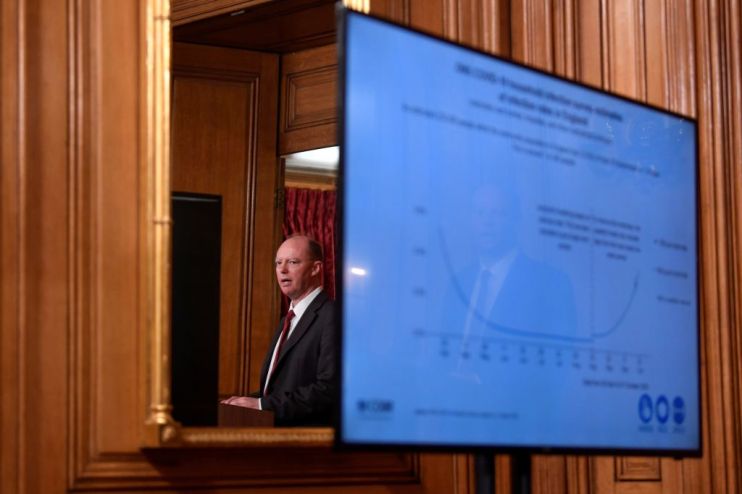The government must take back control of the Covid narrative

The word “narrative” is usually seen as being a posh way of saying “story”.
But the idea of narratives is one which is gaining traction in economics.
Last year, for example, Nobel laureate Robert Shiller of Yale published a book entitled “Narrative Economics”. He argued that it is the perception of events and the stories around them which are the key drivers of the economy.
There is a lot to be said for this view. A good example was provided during one of the many crises of the euro in the 2010s.
In 2012, the then president of the European Central Bank, Mario Dhragi, pronounced that he would “do whatever it takes” to defend the euro. He then did precisely nothing. The euro promptly strengthened. His statement alone was enough to create a positive narrative which was believed by the markets.
We have not had an old-fashioned sterling crisis for many years. But during the Labour government of Harold Wilson in the 1960s, Treasury officials were forbidden from using the word “devaluation”, even in top secret memos. The fear was that a leak would immediately precipitate the collapse of sterling. The pound was indeed devalued eventually, but in circumstances a bit more under the government’s control.
Narratives are important right now. If companies believe, for example, that a successful Covid vaccine will be introduced by the new year, they will feel much more confident about carrying out new investments now and keeping people employed than if they are sceptical.
In terms of boosting confidence, both for individuals and firms, the government has lost control of the Covid narrative.
In March, it made perfect sense for the government to emphasise the data on both hospital admissions and deaths. A new disease had appeared from China which appeared to kill between three and four per cent of those who caught it.
The frightening charts on deaths and hospitalisations served two key purposes. They legitimised the enforced lockdown, and they encouraged people to change their behaviour.
We now know much more about Covid-19. The infection fatality rate, for example, is far lower than originally feared. Vulnerable groups have learned to shield effectively.
We also know that lockdowns themselves generate massive costs. Cancer patients go untreated. Hip operations get postponed. Mental health deteriorates. Jobs are lost and poverty rises.
Today, cases, hospital admissions and deaths are indeed rising again, but at a much slower rate than in March and early April. Yet the government persists in allowing scientists who focus exclusively on Covid to dominate the narrative.
According to the Project Fear charts put up by Chris Whitty and Patrick Valance on 21 September, there should now be nearly 100,000 new cases a day on the official data. There are less than 20,000.
The Prime Minister must change the narrative. Charts on the costs of lockdown should take centre stage, and the benefits of future lockdown restrictions should be presented alongside metrics showing the risk they pose to the economy and society.
A period of silence by SAGE members would also be welcome. At this point in the crisis, we cannot afford to cede control of the narrative to a group of taxpayer funded scientists who are fixated by a single disease.
Main image credit: Getty
